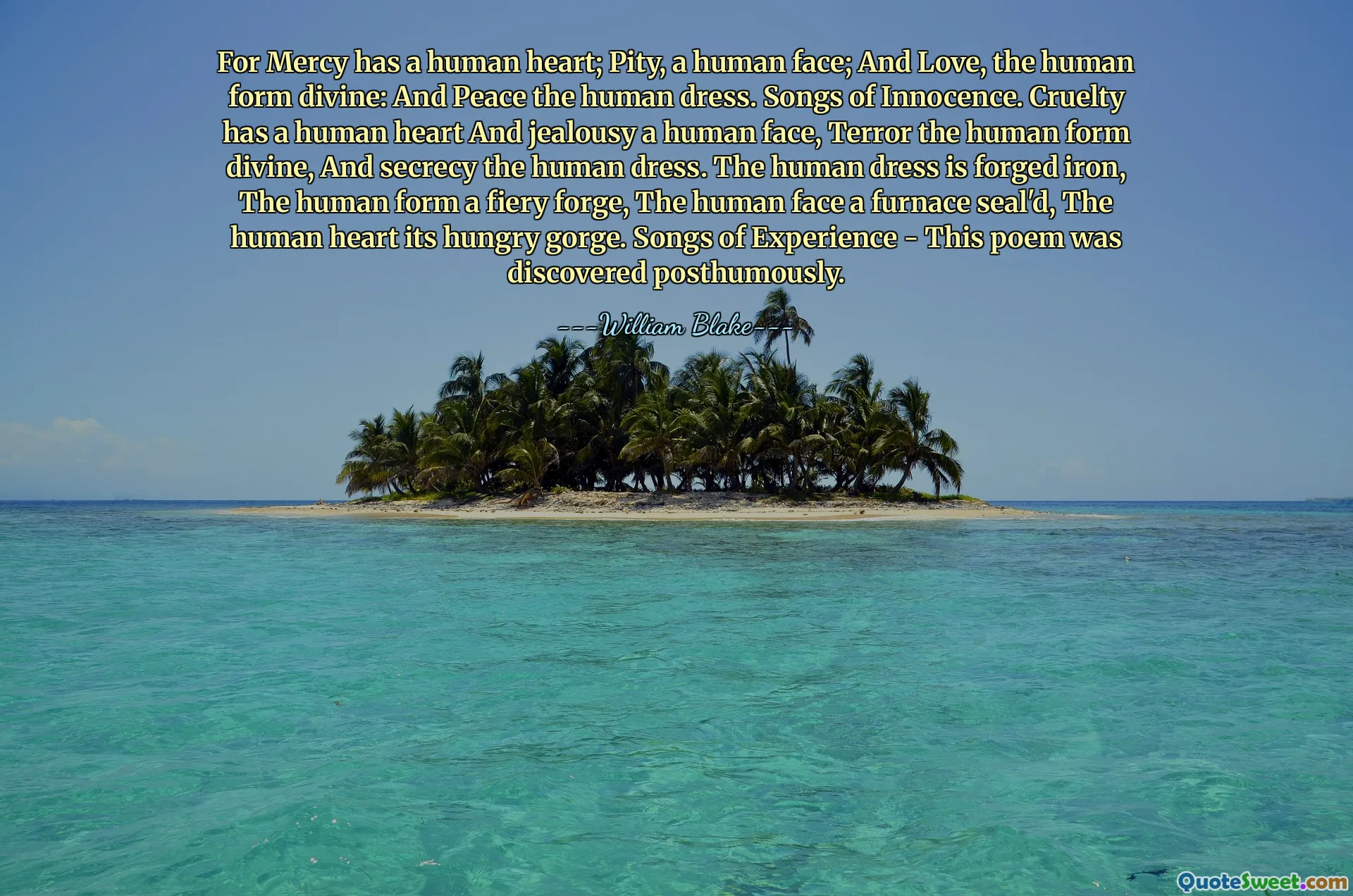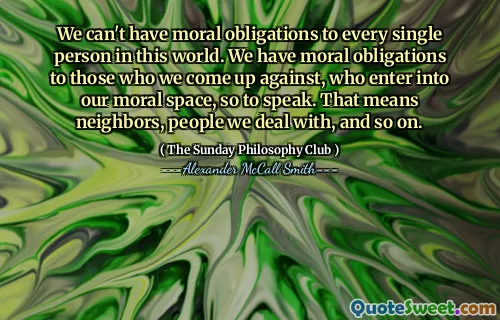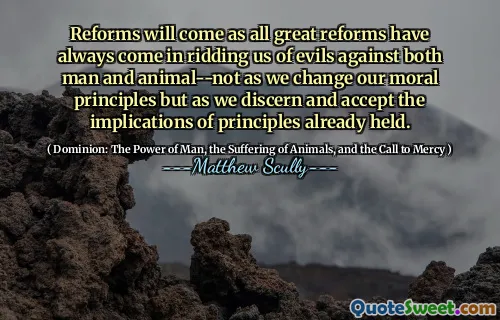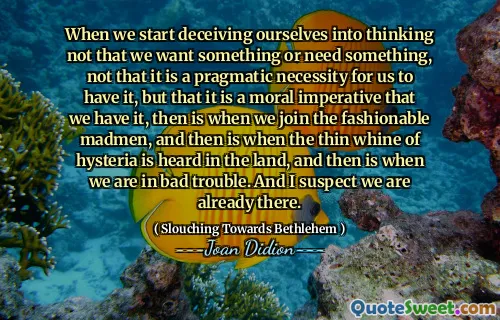
For Mercy has a human heart; Pity, a human face; And Love, the human form divine: And Peace the human dress. Songs of Innocence. Cruelty has a human heart And jealousy a human face, Terror the human form divine, And secrecy the human dress. The human dress is forged iron, The human form a fiery forge, The human face a furnace seal'd, The human heart its hungry gorge. Songs of Experience - This poem was discovered posthumously.
William Blake's poem vividly contrasts the noble virtues of Mercy, Pity, Love, and Peace with the darker, more destructive emotions of Cruelty, Jealousy, Terror, and Secrecy. Through rich symbolic imagery, Blake depicts these qualities as embodied by human forms and faces, suggesting that our innermost feelings and moral virtues are reflected in the surface traits we present. The depiction of human hearts as fiery forges and faces as furnaces conveys the intense internal conflicts and passions that drive human nature. The poem prompts us to consider how virtues and vices are intertwined within us, often hidden beneath what appears outwardly benign—like clothing or masks. Blake's exploration of duality reminds us that moral virtues can be as complex and volatile as their opposite vices; goodness requires ongoing vigilance to prevent the darker aspects from consuming the human soul. The use of industrial imagery, such as forged iron and fiery forges, situates these emotional struggles within a context of strength, transformation, and destruction. It highlights the tension between our higher ideals and base instincts. Ultimately, Blake's poem invites us to reflect on the capacity for both creation and destruction within human beings, emphasizing the importance of virtue while acknowledging the persistent shadows we carry. The contrast also underscores the importance of moral purity and the constant effort to maintain peace and love amidst the tumultuous passions that define human existence.









